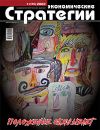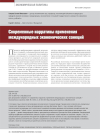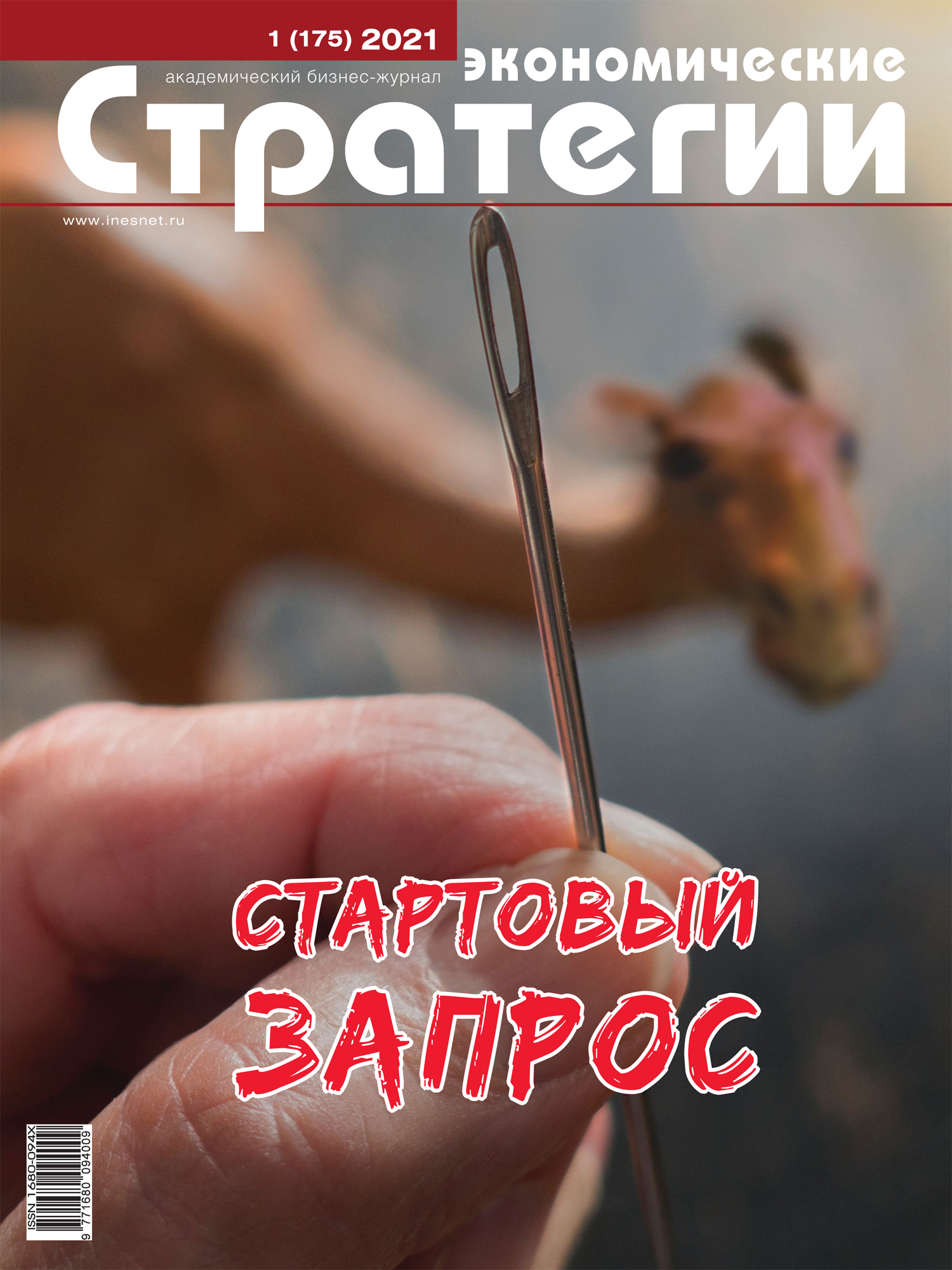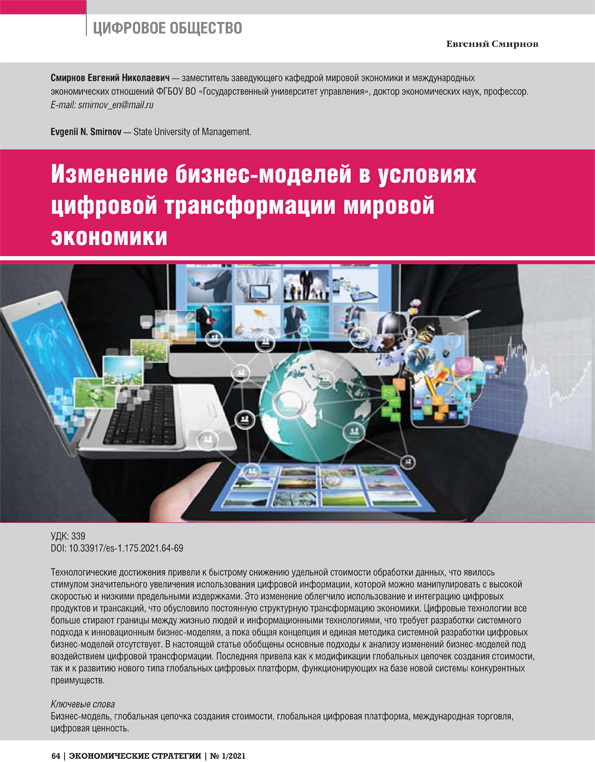Uncertainty Management and Strategic Competitiveness of Russia. Engineering Approach
DOI: 10.33917/es-3.189.2023.24-35
Situation in the country and the world is so complex and uncertain that it is practically impossible to imagine simple, proven forms and tools of management that were used earlier. In response to this challenge, an “engineering approach” is proposed as a synthesis of social and scientific-technological engineering. As the main line for practical application of this approach in the conditions of Russia, the concept of forming the core of strategic action subject within the framework of a new type of social organization, the “Public Engineering Park”, is discussed.
References:
1. Fursov A. Na poroge novogo mira — est’ li sub’ekt strategicheskogo deistviya? ili Zheleznye trebovaniya istoricheskogo protsessa [On the Threshold of a New World — is there a Subject of Strategic Action? or Iron Requirements of the Historical Process]. Sait Andreya Fursova, available at: http://andreyfursov.ru/news/na_poroge_novogo_mira_est_li_subekt_strategicheskogo_dejstvija_ili_zheleznye_trebovan ija_istoricheskogo_processa/2011-03-13-8.
2. Smirnov E.P. Stanet li Rossiya vysokotekhnologichnoi stranoi? [Will Russia Become a High-tech Country?]. Nezavisimaya gazeta, 2003, 12 fevralya, available at: https://www.ng.ru/science/2003-02-12/13_technology.html.
3. Bannykh O. Fabrika intellektual’nogo spetsnaza [Factory of Intellectual Special Forces]. Ekspert. Ural, 2004, 2 fevralya, available at: https://expert.ru/ural/2004/04/04ur-unauk_66655/
4. Smirnov E.P. Rossiya snova na pereput’e. Konkurentosposobnost’ ili degradatsiya: Interv’yu [Russia is at a Crossroads Again. Competitiveness or Degradation: Interview]. Budushchaya Rossiya, 2011, 12 maya, available at: https://futurerussia.ru/extranet/blogs/smirnoff/58/?sphrase_id=441346.
5. Vil’yams Dzh.D. Sovershennyi strateg, ili Bukvar’ po teorii strategicheskikh igr [Perfect Strategist or Primer on the Theory of Strategic Games]. Moscow, Sovetskoe Radio, 1960, 266 p.
6. Smirnov E.P. Media proekt “Balans interesov” [Media Project “Balance of Interests”]. Budushchaya Rossiya, available at: https://futurerussia.ru/upload/iblock/647/Mediaproekt.pdf.
7. Smirnov E.P. Platforma upravleniya razvitiem. Kak naiti balans interesov gosudarstva, biznesa i naseleniya v protsesse formirovaniya I realizatsii programm razvitiya? Inzhenernyi podkhod: Trudy Mezhdunarodnoi nauchno-prakticheskoi konferentsii “Institutsional’nye i finansovye mekhanizmy razvitiya territorial’nykh klasterov i tekhnologicheskikh platform”, g. Dubna, 11–12 noyabrya, 2016 g. [Development Management Platform. How to Find a Balance of Interests of the State, Business and Population in the Process of Formation and Implementation of Development Programs? Engineering Approach: Proceedings of the International Scientific and Practical Conference “Institutional and Financial Mechanisms for the Development of Territorial Clusters and Technological Platforms”, Dubna, November 11–12, 2016]. Budushchaya Rossiya, available at: http://futurerussia.ru/upload/iblock/647/Smirnov%20EP_doklad_Dubna.pdf.







